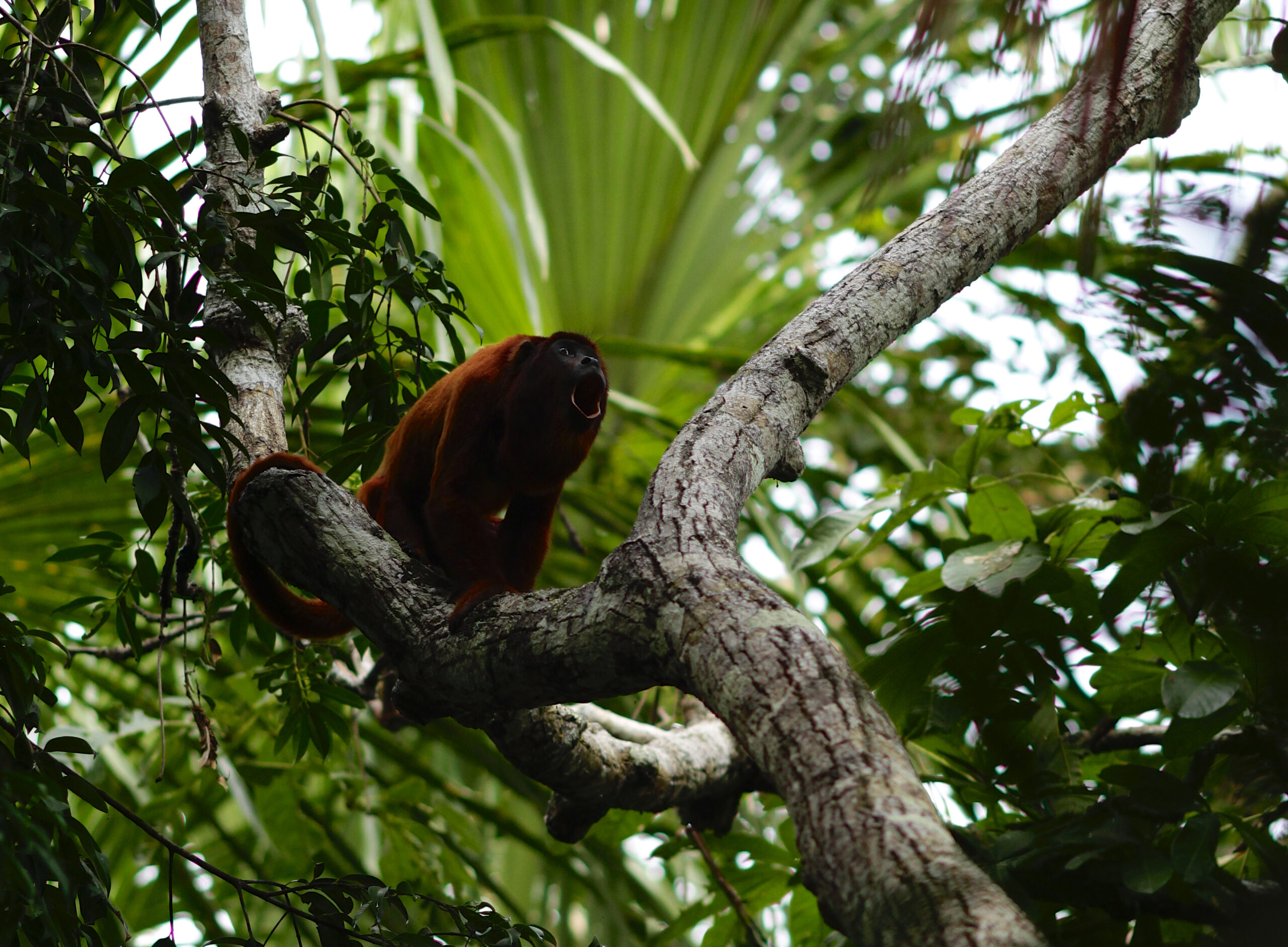Howler monkeys
(Alouatta)

South and Central American forests
Did you know that there are over a dozen species of howler monkeys? We live throughout Central America and South America, sleeping in the trees of the dense rainforest.
About me
You can probably guess how we got our name: IT’S BECAUSE OF OUR LOUD VOICES! …sorry, too loud? Because of the way we call to each other, you might think of us as friendly and social animals, but most of us are actually quite serious and we really dislike humans. We might just “howl” at you to keep your distance!
We actually come in different colors, from red howler monkeys to black and brown. While we scamper around on branches, run on the ground, and hang from our prehensile tails, we actually spend a large part of the day sitting and resting. In fact, compared to other monkeys in our area, we’re quite large and slow. We eat fruit, flowers, and nuts, but more than anything we actually like to eat leaves!

Fast Facts: Did you know?
The hyoid bone (at the top of your neck beneath your chin) is big and hollow for us, which is how we can make calls that can be heard miles away, even through the dense rainforests. That’s what makes us the loudest land animals!
A big part of why we spend so much time resting is because digesting leaves is hard work, and doesn’t give us as much energy and nutrition as other foods. But we like leaves just fine!
Some of us, like the endangered Guatemalan or Yucatán howler monkey, live as far north as Guatemala and Mexico, and some of us, like the unusually gentle black-and-gold howler, live as far south as Uruguay and northern Argentina.
The rainforests of the Amazon, Congo, and Indonesia are our last best line of defense against the biodiversity and climate crisis. But 17 corporations are making massive profits by driving their destruction and the violation of human rights. That has to end NOW.
Why I want to Keep Forests Standing
Many of us howler monkey species have been forced to relocate due to rainforest fragmentation. The Yucatán black howler is particularly endangered! Although many of us can adapt to the dire times better than others because of our sedentary lifestyle, we still rely on trees for food, water, and shelter, and if the forests shrink or disappear, that would be really bad news for us.



 South and Central American forests
South and Central American forests










